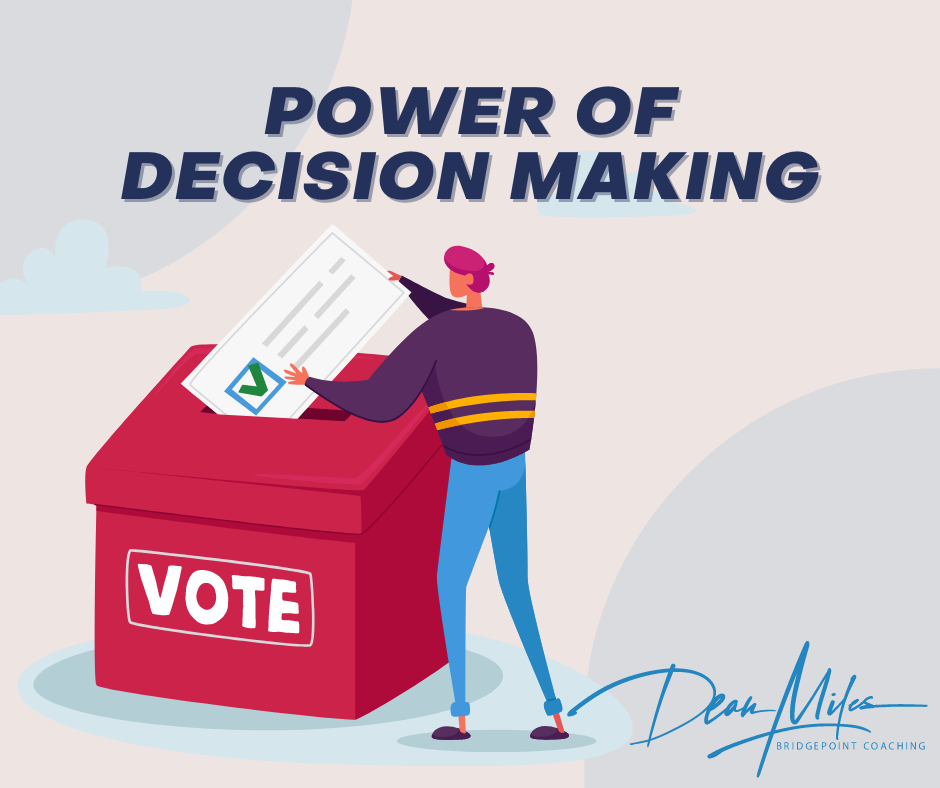Oct05

The Power of Decision Making
Every action in life begins with a decision. Unfortunately, we don't always make the best ones. James Clear, the author of Atomic Habits, says, "Every action you take is a vote for the person you wish to become." Our decisions shape our lives more than anything else, and often, we're not even aware of the magnitude of their power.
The Science of Decision Making
Scientists have only begun to scratch the surface of understanding how decisions are made. It was once thought that emotions played little to no role in decision-making and that cognitive processes like cost-benefit analysis were carried out dispassionately. However, this view has changed dramatically in recent years. Neuroscientists have discovered that emotion is intimately involved in every decision we make, from what we eat for breakfast to whether or not we get out of bed in the morning.
In one study, participants were asked to choose between two different financial gambles while their brains were being scanned. Scientists found that activity in the amygdala (the part of the brain responsible for processing emotions) predicted whether people would prefer a sure thing or a gamble with higher potential payoffs. In other words, our emotions play a role in even seemingly rational decisions.
It's important to note that not all decisions are created equal. Some decisions are what psychologists call "one-shot decisions," while others are "repeated decisions." One-shot decisions are typically made without much thought because they don't have significant implications and are not likely to be repeated in the future (e.g., what you wear to your friend's birthday party). Repeated decisions are made frequently and have significant consequences (e.g., whether or not to go to college).
While one-shot decisions may seem inconsequential, they can have a cumulative effect on our lives. Every time we make a one-shot decision, we vote for the type of person we want to become. Over time, these votes accumulate and shape our lives in surprising ways. Consider someone who habitually chooses unhealthy foods over healthy ones. They may not think much about it at the time, but each vote adds up and contributes to an unhealthy lifestyle. In contrast, someone who habitually chooses healthy foods is voting for a sustainable long-term lifestyle.
The next time you're facing a decision, big or small, remember the power it has to shape your life. Be mindful of the person you want to become and make choices accordingly. Every vote counts!
By Dean Miles
Keywords: Business Continuity, Mental Health, Startups
 The Orchestra Needs a Conductor: Why Multi-Model Agents Require H2E Governance
The Orchestra Needs a Conductor: Why Multi-Model Agents Require H2E Governance The Role of Memory in Modern-day Business
The Role of Memory in Modern-day Business The Architectures of Permanence: A Comparative Analysis of the "Big Three" AI Strategies (2026)
The Architectures of Permanence: A Comparative Analysis of the "Big Three" AI Strategies (2026) Friday’s Change Reflection Quote - Leadership of Change - Change Leaders Enable Generational Advancement
Friday’s Change Reflection Quote - Leadership of Change - Change Leaders Enable Generational Advancement The Corix Partners Friday Reading List - February 27, 2026
The Corix Partners Friday Reading List - February 27, 2026